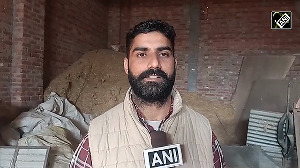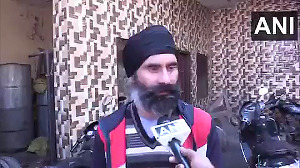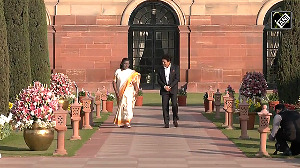Hosts South Africa are set to place their 2010 World Cup fortunes, and possibly those of the tournament's success, in the hands of a Brazilian journeyman coach and his trusted clipboard.
Joel Santana, 59, appeared to be reaching the end of what, until now, had been a typical career for a Brazilian coach in which he has won trophies and been sacked by a succession of clubs, only to keep coming back for more.
Yet, despite having no experience with a national side and only a couple of brief stints with clubs in the Middle East and Japan, Santana has been given the chance to coach the host nation of the first World Cup to be played on African soil.
On Monday, Santana's club Flamengo said that he had agreed terms to replace compatriot Carlos Alberto Parreira, who quit the 'Bafana Bafana' for personal reasons. The decision has still to be confirmed by the South Africa Football Association (SAFA).
The coach is known for his down-to-earth style and his trademark clipboard, which he has faithfully stood by in an age when many fellow coaches have turned to laptop computers.
Describing the offer as a once-in-a-lifetime opportunity, he was typically modest on Monday.
"I'm happy that I'm being recognised outside Brazil. It shows that my work is not all that bad," he said.
Santana is a veteran survivor of the topsy-turvy world of Brazilian coaching where success, though wildly celebrated, is quickly forgotten.
He has had a remarkable four stints with both Flamengo and Fluminense and three with their Rio de Janeiro rivals Vasco da Gama.
Santana has also coached Botafogo, Bahia, Vitoria, Coritiba, Corinthians, Guarani and Internacional.
He has won the Carioca (Rio de Janeiro state) championship with Flamengo, Fluminense, Botafogo and Vasco, plus the Brazilian championship and Copa Mercosur with Vasco.
FOUR SACKINGS
But he has also experienced the other side of the coin and is no stranger to the sack.
Between 2003 and 2004, he was fired by four clubs, lasting five games at Guarani and 16 in a subsequent spell at Internacional.
But in 2005, he bounced back to save Flamengo from relegation and returned to the same club two years later, where he led them from 15th place in the Brazilian championship to a top-four finish and a place in the South American Libertadores Cup.
Most commentators agreed that the sum of Flamengo's team was greater than its parts, a quality which may have attracted the South Africans.
Santana will again have limited resources at his disposal, yet South Africa are seen as needing to perform well in 2010 to maintain local enthusiasm for the tournament.
But, after four spells with a club who claim to have 25 million fans and boast one of the most fickle followings anywhere, pressure is something that Santana is more than used to coping with.








 © 2025
© 2025